Six Texas A&M Science Faculty Named to Endowed Chairs and Professorships
Six Texas A&M University professors recently have been appointed to endowed chairs and professorships within the College of Science, announced Dr. H. Joseph Newton, dean of the College of Science.
Wenshe Liu has been appointed as the inaugural holder of the Emile and Marta Schweikert Professorship in Chemistry, established in May 2014 in honor of longtime Texas A&M chemist Dr. Emile A. Schweikert to support the teaching, research, service and professional development activities of faculty in the Department of Chemistry.
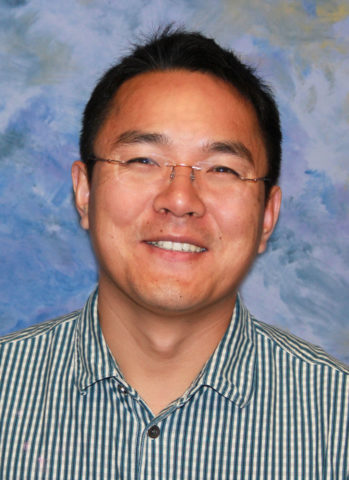
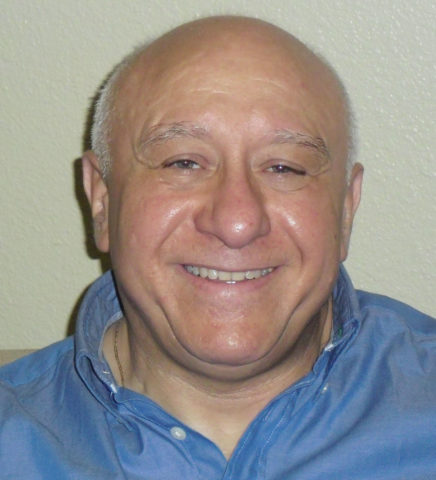
Edriss Titi has been appointed as the initial holder of the Arthur Owen Endowed Professorship in Mathematics, established in 2005 by Arthur George and Mary Emolene Owen Chair in Mathematics co-holders William Johnson and Gilles Pisier using proceeds from the Owens’ original gift to help attract mathematical scholars of the highest caliber to Texas A&M.
John Hardy and Casey Papovich have been appointed as co-holders of the Marsha L. ’69 and Ralph F. Schilling ’68 Chair in Experimental Physics, established in August 2013 by the Schillings to support the teaching, research, service and professional development activities of faculty in the Department of Physics and Astronomy.
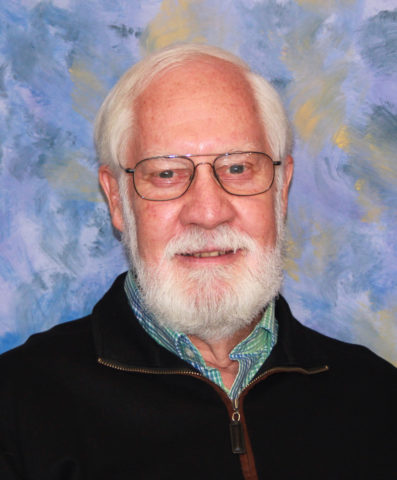
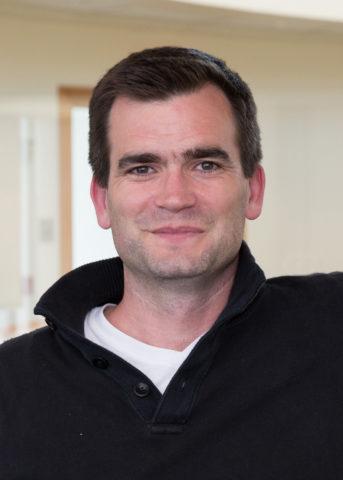
Valery Pokrovsky has been appointed to the William R. Thurman ’58 Chair in Physics, established in June 2008 through a planned gift from Thurman intended to support the teaching, research, service, and professional development activities of future Texas A&M Physics and Astronomy faculty.
Hongcai Joe Zhou has been appointed to a Robert A. Welch Chair in Chemistry — prestigious positions endowed by the Robert A. Welch Foundation that are awarded on the basis of chemical research achievement and impact.
“We continue to attract and retain wonderful faculty, thanks to the generosity of a wide variety of donors,” said Dr. H. Joseph Newton, dean of the College of Science.
Liu, a visible early career leader in the worldwide chemical biological community, joined the Texas A&M Chemistry faculty in 2007 after earning his doctorate in chemistry at the University of California, Davis in 2005. In addition to being an associate professor of chemistry, he is a member of the Professional Program in Biotechnology and the Interdisciplinary Faculty of Toxicology. Liu’s primary research focus is to develop chemical and biotechnological methods for producing proteins with unique functionalities. His research group has invented several novel approaches for the synthesis of proteins with specific posttranslational modifications and significantly expanded the genetically encoded amino acid inventory in living systems to include more than 50 unique noncanonical amino acids. Another grand invention from Liu’s group is to genetically install two different noncanonical amino acids into one protein in living cells. Such techniques have opened up new avenues of research, including cancer epigenetics and drug discovery, and a host of publications in major research journals, including the Journal of the American Chemical Society, Angewandte Chemie, ACS Chemical Biology and Chemical Communications. Liu was recognized with a National Science Foundation CAREER Award in 2012, and his current research is funded by NSF, the National Institutes of Health and the Welch Foundation. In addition, he currently serves as an editor for Frontiers in Chemical Research and Science Reports.
Titi, who is one of the world’s foremost experts in applied partial differential equations, joined the Texas A&M Mathematics faculty in 2014 after 16 years at the Weizmann Institute of Science as a professor in the Department of Computer Science and Applied Mathematics. His general area of research is in nonlinear partial differential equations, and he is considered one of the world’s top experts in mathematical fluid dynamics and issues arising from geological flows. His research has applications to such areas as large-scale ocean and atmospheric dynamics, turbulence, combustion, nonlinear fiber optics, control theory, lasers and elasticity. Titi received his Ph.D. from Indiana University in 1986 and, following postdoctoral appointments at the University of Chicago and Cornell University, spent the majority of his career at the University of California, Irvine, where he is a professor emeritus since 2014. He is a fellow of the Institute of Physics, the Society for Industrial and Applied Mathematics and the American Mathematical Society. In addition to delivering many international conference talks and colloquia, he has been awarded two Distinguished Visiting Scholarships to Los Alamos National Laboratory, the SIAM Prize for Best Paper in Partial Differential Equations, a Humboldt Research Award and a Special Distinguished Visiting Researcher Award from the Science Without Borders program in Brazil. Titi’s research is supported by funding from a variety of sources, including NSF, the U.S. Department of Energy, Los Alamos National Laboratory, the Israel Science Foundation and the U.S. Civilian Research and Development Foundation.
Hardy, who is world renowned for his expertise in experimental nuclear physics and related studies of nuclear beta decay, joined the Texas A&M Physics and Astronomy faculty and the Cyclotron Institute in 1997 after 27 years at the Chalk River Nuclear Laboratories of Atomic Energy of Canada Limited, where he rose to division director responsible for the Tandem Accelerator Superconducting Cyclotron facility. He was appointed as distinguished professor at Texas A&M in 2007, largely on the basis of his career work dedicated to pioneering the measurement of “ft value,” or comparative half-life of certain beta decays that helps to explain the standard model theory of particle physics involving the fundamental building blocks of matter and the universe. Hardy has performed a long series of very high precision measurements to obtain unprecedented precision for the ft values, making his name synonymous with these measurements for more than 30 years. A fellow of both the American Physical Society (APS) and the Royal Society of Canada (RSC), Hardy has been recognized with the APS’ Tom W. Bonner Prize in Nuclear Physics, the RSC’s Rutherford Medal in Physics, the Canadian Association of Physicists’ Herzberg Medal, McGill University’s D.W. Ambridge Prize and a Texas A&M Association of Former Students Distinguished Achievement Award in Research. Hardy has published hundreds of papers and has served on many Program Advisory Committees for national laboratories as well as advisory committees to funding agencies across the United States and Canada.
Papovich, a member of the George P. and Cynthia Woods Mitchell Institute for Fundamental Physics and Astronomy who is widely respected as both an observational astronomer and prolific researcher, joined Texas A&M Physics and Astronomy faculty in 2008. His research focuses on the nature of the universe and the formation of its first cosmic structures, from the formation and evolution of the most distant galaxies to the growth of large-scale structures of galaxies. His work involves taking and analyzing data from NASA’s space-based Great Observatories (Hubble, Spitzer and Chandra), the NASA/ESA Herschel Space Observatory and the largest terrestrial telescopes. Papovich recently earned mention to Thomson Reuters Highly Cited Researchers 2015 list for the second consecutive year. In 2013 he was part of a team that discovered the universe’s most distant galaxy ever — a breakthrough deemed one of Texas Monthly’s top five Texas-based scientific discoveries for 2013. Currently armed with a $200,000 NSF grant, Papovich is working on the largest survey of distant-universe galaxies ever conducted, the DECam/IRAC Galaxy Environment Survey (DIRGES), a study that will analyze an area about 100 times as large as that of the full Moon and cover a cosmological volume of 1 billion cubic light-years. In addition to serving as chair of the science team for the Giant Magellan Telescope’s primary spectrograph, his work has been highlighted as part of the science case for the overall telescope.
Pokrovsky, an expert in condensed matter theory and an outstanding scientist of true international caliber, joined Texas A&M Physics and Astronomy in 1992, earning appointment as a distinguished professor in 1998. His areas of research include scattering theory, statistical mechanics, two-dimensional systems, magnetism, superconductivity and the quantum Hall effect. His original scaling theory of the second-order phase transition — one of the major results in statistical physics — as well as his famous theory of a new topological phase transition — known in literature as the Pokrovsky-Talapov transition — were honored with the APS Lars Onsager Prize and the Academy of Science USSR Landau Prize. After receiving his master’s of science degree and doctorate in the former Soviet Union, Pokrovsky served as head of the Laboratory for Theoretical Physics at the Institute of Radiophysics and the Institute of Semiconductor Physics in the Siberian Branch of the Soviet Academy of Sciences. He also received a doctoral degree in physics and mathematics from Novosibirsk University and was a section head at the Landau Institute of Theoretical Physics. Pokrovsky’s many fundamental research contributions have been recognized with awards ranging from the Alexander von Humboldt Research Award to a Texas A&M Association of Former Students Distinguished Achievement Award in Research in 2001. His recent results on Landau-Zener tunneling in condensed matter systems, Bose-Einstein condensation of magnons and effects of disorder in physics of cold atoms are in the center of interest in contemporary physics and are lauded by the international condensed matter community.
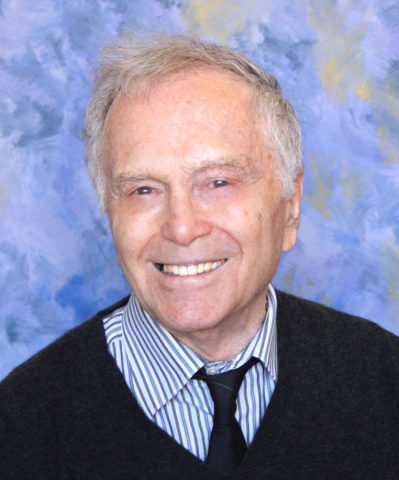
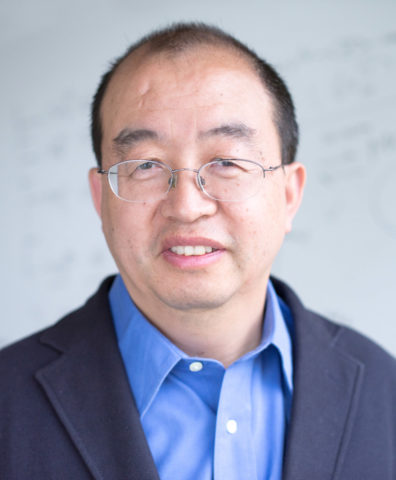
Zhou, an inorganic chemist who joined the Texas A&M Chemistry faculty in 2008, is an expert in the design of framework materials — very small, precisely arranged and highly porous polymer-based structures with the highest internal surface area known to man and a rapidly developing field of materials chemistry. With just a tweak of their crystalline structure and properties, these frameworks become ideal for adsorbing any type of different molecule, resulting in porous, grid-like materials with broad applications in fuel storage, emissions controls and drug delivery. Zhou earned his doctorate in chemistry from Texas A&M in 2000 under the guidance of legendary Texas A&M inorganic chemist F. Albert Cotton, then spent two years as a postdoctoral fellow at Harvard University and was an associate professor at Miami University prior to returning to Texas A&M. Zhou’s research focuses on sustainable energy and the use of metal-organic frameworks (MOFs) and porous polymer networks (PPNs) as carbon dioxide sorbents to develop state-of-the-art concepts and materials to facilitate hydrogen production and storage, efficient conversion of biofuels, economic production of solar energy and other renewable energy resources. In addition to nine individual U.S. Department of Energy grants, each exceeding $1 million, Zhou has received many awards recognizing his pioneering research, including the Research Innovation Award and the Cottrell Scholar Award from the Research Corporation for Science Advancement, an NSF CAREER Award, the Miami University Distinguished Scholar-Young Investigator Award and the 2007 Faculty Excellence Award from Air Products and Chemicals Inc. In 2014, he was awarded a prestigious Japanese Society for the Promotion of Science fellowship and was listed as a Thomson Reuters Highly Cited Researcher for both 2014 and 2015. A member of the Texas A&M Energy Institute and the Department of Materials Science and Engineering, he has served since 2011 as chief scientific advisor for framergy® Inc., a Texas-based startup company that oversees the commercialization of groundbreaking MOF innovations for industrial uses.
View a complete list of endowed chairs and professorships in the College of Science.
To learn more about endowed faculty positions and other development-related impact opportunities in the Texas A&M College of Science, go to https://science.tamu.edu/giving/.
# # # # # # # # # #
About Research at Texas A&M University: As one of the world’s leading research institutions, Texas A&M is at the forefront in making significant contributions to the storehouse of knowledge, including that of science and technology. Research conducted at Texas A&M represented annual expenditures of more than $820 million in FY 2013, ranking Texas A&M in the top 20 of the National Science Foundation’s most recent survey of research and development expenditures among U.S. colleges and universities. Recently reported FY 2014 research expenditures exceed $854 million. That research creates new knowledge that provides basic, fundamental and applied contributions resulting in many cases in economic benefits to the state, nation and world. To learn more, visit http://research.tamu.edu.
-aTm-
Contact: Shana K. Hutchins, (979) 862-1237 or shutchins@science.tamu.edu or Dr. H. Joseph Newton, (979) 845-7361 or jnewton@stat.tamu.edu
The post Six Texas A&M Science Faculty Named to Endowed Chairs and Professorships appeared first on College of Science.
